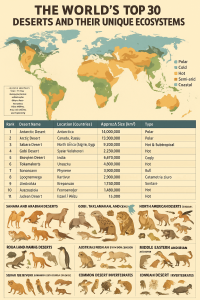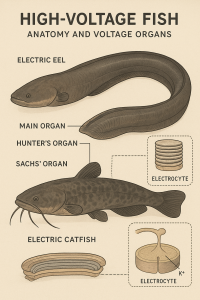Introduction
The landscape of information retrieval has undergone a profound transformation since the advent of the internet. From rudimentary indexing systems to sophisticated artificial intelligence (AI) models, search engines have evolved to meet the ever-growing demand for accessible and relevant information. This article provides a comprehensive comparison between AI-powered search engines and traditional search engines, delving into their historical origins, evolutionary paths, and a detailed analysis of their respective advantages and disadvantages.
Origins and Evolution of Traditional Search Engines
The concept of an information retrieval system predates the internet itself. In 1945, Vannevar Bush envisioned the “memex,” a device that would allow individuals to store and retrieve vast amounts of information through interconnected annotations, a precursor to modern hyperlinks [1]. This foundational idea laid the theoretical groundwork for future search technologies.
The practical birth of search engines coincided with the rise of the internet in the early 1990s. Before 1993, the World Wide Web was largely indexed manually. The first internet search engines, however, predated the Web. WHOIS user search emerged in 1982, followed by the Knowbot Information Service in 1989. The first well-documented search engine to index content files, specifically FTP files, was Archie, launched on September 10, 1990 [1]. Archie indexed file names but not their content, as the volume of data was manageable enough for manual searching.
Following Archie, the rise of Gopher in 1991 led to the development of Veronica and Jughead, which similarly searched file names and titles within Gopher index systems. In 1993, W3Catalog became the web’s first primitive search engine, and Matthew Gray’s World Wide Web Wanderer created the
first index, “Wandex.” Aliweb followed in November 1993, relying on site administrators to submit index files [1].
A significant milestone was JumpStation, created in December 1993, which was the first WWW resource-discovery tool to combine crawling, indexing, and searching [1]. In 1994, WebCrawler emerged as one of the first “all text” crawler-based search engines, allowing users to search for any word on any web page, a feature that became the standard. Lycos also launched in 1994, becoming a major commercial player [1].
Yahoo! Search, initially a web directory, added a search function in 1995 and quickly gained popularity. The late 1990s saw a proliferation of search engines like Magellan, Excite, Infoseek, Inktomi, Northern Light, and AltaVista. However, the landscape was dramatically reshaped with the arrival of Google in 1998, which introduced the PageRank algorithm, revolutionizing how web pages were ranked based on link analysis [1]. Google rapidly became the dominant force, a position it largely maintains today.
Origins and Evolution of AI-Powered Search Engines
The integration of Artificial Intelligence into search technology represents a natural progression from keyword-based systems to more intelligent, context-aware information retrieval. The foundational ideas of AI date back to the mid-20th century, with pioneers like Alan Turing questioning “Can machines think?” in 1950, and John McCarthy coining the term “Artificial Intelligence” in 1956 [2]. Early AI research focused on rule-based systems and symbolic AI, which, while primitive by today’s standards, laid the groundwork for understanding how machines could process and interpret information.
The journey towards AI-powered search began to accelerate with advancements in Natural Language Processing (NLP) and machine learning. Early search engines struggled with understanding the nuances of human language, often providing results based on exact keyword matches rather than the user’s underlying intent. The concept of semantic search, which aims to improve search accuracy by understanding the searcher’s intent and the contextual meaning of terms, gained traction in the late 1990s and early 2000s [2].
Google’s RankBrain, introduced in 2015, marked a significant step in integrating AI into mainstream search. It was an AI-driven ranking algorithm designed to better interpret complex and ambiguous queries [2]. This was followed by further developments leveraging deep learning and neural networks, enabling search engines to move beyond simple keyword matching to comprehending context, relationships between entities, and user behavior. Today, AI-powered search engines utilize sophisticated algorithms to provide personalized, conversational, and multimodal search experiences, transforming how users interact with information [2].
Traditional Search Engines: Advantages and Disadvantages
Traditional search engines, characterized by their reliance on keyword matching and extensive web crawling, have served as the primary gateway to online information for decades. Their architecture is built around indexing vast amounts of web content and ranking results based on relevance algorithms, often heavily influenced by SEO practices.
Advantages of Traditional Search Engines
•Wide Accessibility: Traditional search engines index an immense volume of data across the web, covering a broad spectrum of topics. This ensures users can find information on virtually any subject [3].
•Fast Results: These engines are optimized for speed, delivering a list of links and resources within seconds of a query [3].
•Simple to Use: The straightforward, user-friendly interface is familiar to most users, requiring little to no learning curve [3].
•Transparency: Results are typically displayed in a list format, offering users a range of options and allowing them to select sources based on perceived relevance or reputation [3].
•Cost-Effective: Basic usage is free for users, with the revenue model primarily driven by advertising, making information widely accessible without direct cost [3].
Disadvantages of Traditional Search Engines
•Limited Relevance: Often struggle to fully match user intent, as results are primarily based on keyword matching rather than contextual understanding. This can lead to users sifting through irrelevant links [3].
•Information Overload: The sheer volume of results can be overwhelming, making it difficult for users to discern credible or most relevant sources [3].
•Minimal Personalization: While some related results may be suggested, traditional engines generally lack deep context about individual user preferences or intent, leading to a more generic search experience [3].
•Static Results: Results typically do not dynamically evolve based on immediate user interactions; once a link is clicked, the search engine doesn’t adjust its results in real-time for that specific session [3].
•SEO Exploitation: Rankings can be manipulated by SEO tactics, potentially prioritizing content optimized for visibility over genuine value, making it harder for users to find truly valuable information [3].
AI-Powered Search Engines: Advantages and Disadvantages
AI-powered search engines represent the next generation of information retrieval, leveraging advanced AI techniques such as natural language processing, machine learning, and deep learning to understand and respond to user queries more intelligently. Examples include Google’s AI features, Perplexity AI, and You.com.
Advantages of AI-Powered Search Engines
•Contextual Understanding: Utilize NLP to grasp the context and intent behind a user’s query, leading to more accurate and relevant results that directly address what the user is looking for [3].
•Personalized Results: By analyzing user behavior, preferences, and historical interactions, AI engines can tailor search results to individual users, offering a highly customized experience [3].
•Streamlined Answers: Instead of just a list of links, AI-driven search engines often provide direct, concise answers, summaries, or even generate new content based on the query, saving users time and effort [3].
•Learning Capability: These systems continuously improve through user interactions and new data, becoming more adept at predicting user intent and delivering superior results over time [3].
•Multimodal Search: Capable of processing various types of input, including text, voice, and images, allowing for more dynamic and intuitive search experiences, such as searching by taking a photo [3].
Disadvantages of AI-Powered Search Engines
•Bias and Fairness Issues: AI algorithms can inadvertently amplify biases present in their training data, potentially leading to skewed or unfair results if not carefully monitored and mitigated [3].
•Privacy Concerns: The reliance on extensive user data for personalization raises significant privacy concerns, as users may worry about how their data is collected, stored, and utilized [3].
•Opaque Decision-Making: The complex algorithms and neural networks used in AI search can make their decision-making processes opaque, leading to a lack of transparency regarding why certain results are prioritized [3].
•Dependence on Quality Data: The effectiveness of AI search engines is heavily dependent on the quality and comprehensiveness of their training data. Inaccurate or flawed data can result in misleading or incorrect information [3].
•Resource-Intensive: AI-driven engines demand substantial computational power for processing and delivering results, which can be costly and resource-intensive to operate and maintain [3].
Conclusion
The evolution from traditional keyword-based search to sophisticated AI-powered search engines marks a significant leap in how we access and interact with information. While traditional engines offer broad accessibility and simplicity, they often fall short in understanding complex intent and providing personalized experiences. AI-powered search, conversely, excels in contextual understanding, personalization, and delivering streamlined answers, but introduces challenges related to bias, privacy, and computational demands.
As AI technology continues to advance, the future of search will likely involve a hybrid approach, combining the strengths of both paradigms to create even more efficient, intelligent, and user-centric information retrieval systems. The ongoing development promises a future where finding information is not just about matching keywords, but about truly understanding and anticipating human needs.







Be First to Comment